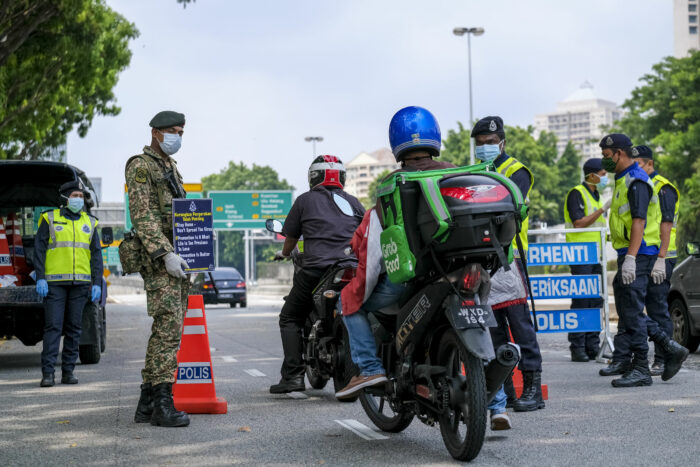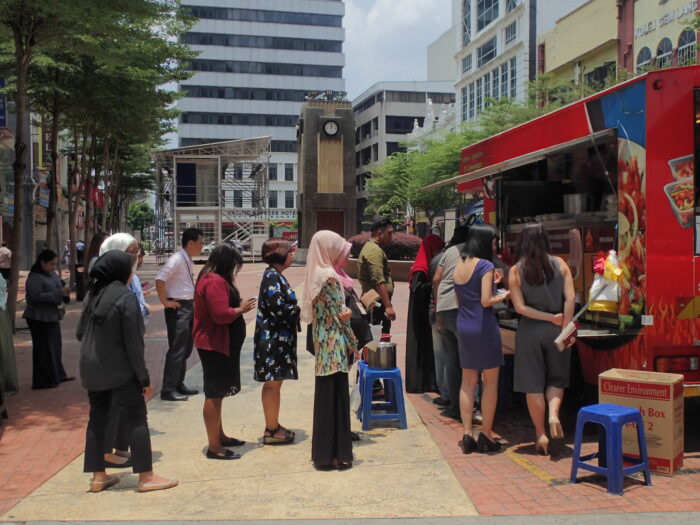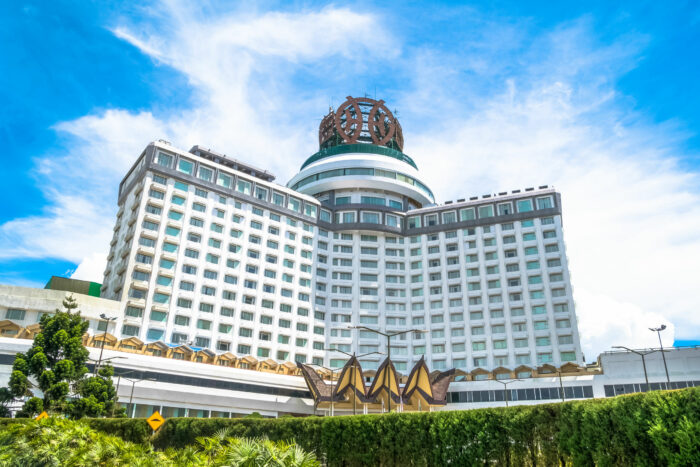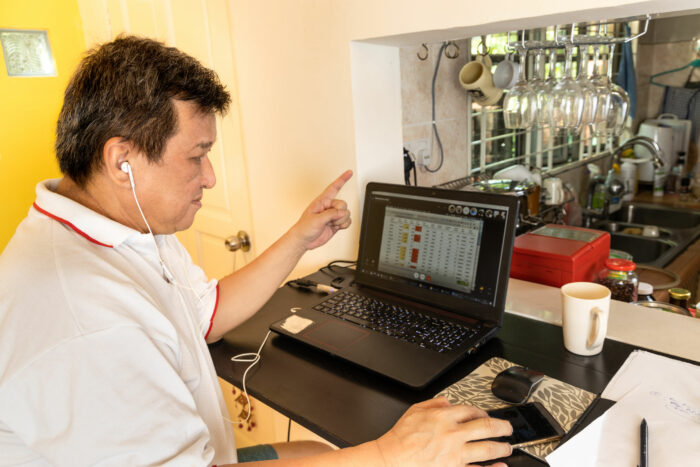Travel for work in Malaysia only allowed with proper documentation

In an effort to curb the spread of COVID-19 in Malaysia, the government has imposed a nationwide movement control order.
Socso to protect self-employed in Malaysia by year-end

The Social Security Organisation (Socso) has announced plans to protect 200,000 active self-employed individuals by the end of this year.
Malaysia approved wage subsidies worth US$3.12 billion

The government’s Wage Subsidy Programme 1.0 (PSU 1.0) has approved wage subsidies of RM12.86 (US$3.12 billion) as of April 23.
Malaysia imposes MCO with 30% of staff allowed in offices in Selangor

Businesses in six Selangor districts will be allowed to have 30% of staff present in offices from May 6 till May 17 under the latest movement control order.
Malaysian employers group appeals to delay minimum wage review

Now is not the right time to review the minimum wage as this will add to costs of doing business, said the MEF president.
Malaysian unions urge for better employee welfare amid pandemic

Congress of Unions of Employees in the Public and Civil Services (Cuepacs) has called for the revision of minimum wages and the remuneration system.
Malaysian companies urged to lodge concerns on regulatory barriers

The MyMudah platform, launched last July, aims to alleviate the economic impact of COVID-19 on local enterprises and international businesses.
Malaysia aims to have 50 SMEs join its business improvement programme

SMEs selected for the programme will undergo capacity building and be eligible to receive financial assistance of up to RM500,000.
Employers’ group in Malaysia says vaccination should remain voluntary

The Malaysian Employers Federation (MEF) has said vaccinations are still on a voluntary basis unless the government makes it mandatory for workers.
8.8% of Malaysian workers paid below minimum wage

8.8% of workers in the country are paid a basic salary below the RM1,200 (US$291) monthly minimum wage.
Employers in Malaysia failed to meet standard housing requirements

Offences include uncertified accommodation, non-compliance with local authority laws and not providing rest and dining areas to employees.
Malaysia boosts social enterprise growth

Through a new initiative, the government aims to provide a level playing field for social impact firms by supporting their job creation and innovation efforts.
Malaysia’s HR Development Fund aims to provide 50,000 job placements

It aims to work with employers, employers’ associations and career strategic partners nationwide to achieve its job target.
Malaysia approves COVID-19 vaccination leave

Human resources minister Datuk Seri M. Saravanan has given the green light allowing employers to give their staff leave for getting vaccinated.
Unemployment in Malaysia dropped slightly to 4.8% in February

The sectors of wholesale and retail trade, education, and human health and social work saw a continuous increase in employment.
Malaysia mulls giving a day off for employees to get jab

The Human Resources Ministry and the Ministry of Health are deliberating whether employees should be given an off-day to get their COVID-19 inoculations.
Malaysia announces RM100 million in training and salary incentives

The initiative, by the Malaysia Digital Economy Corporation (MDEC), is aimed at boosting the digital business industry and to nurture quality tech talent.
Malaysia’s unemployment rate expected to ease to 4.3% in 2021

Despite the improved outlook, the labour market is constrained by factors such as
a mismatch between qualifications and job opportunities.
Malaysia’s hiring incentive programme aids 36,700 jobseekers

Under the programme, jobseekers who successfully found jobs within a distance of less than 100 km would be given mobility assistance of RM500.
Malaysia needs comprehensive labour market policies to aid recovery

Malaysia needs to put in continued effort to catalyse economic transformation and create high-skilled jobs, said the central bank governor.
More workers in Malaysia to return to the workplace from April

The level of office attendance for civil servants is subjected to the Public Service Department, while the private sector is allowed to have 100% of staff back.
Hoteliers in Malaysia must pay out service charges collected to staff

The court judgment read that service charge, being monies collected from third parties, does not belong to the hotel, and should be transferred to employees.
Malaysia amending employment law to cater for WFH

The government is proposing a change to the current employment law to support a work-from-home (WFH) culture even in the post-pandemic era.
Women trade union group in Malaysia calls for 98 days of maternity leave

Wanita Industrial Malaysia (WIM), a trade union coalition representing female workers, has urged the government to mandate 98 days of maternity leave.
World Bank urges Malaysia to increase female labour participation

The development model that worked in the past for Malaysia is no longer enough for it to navigate to the next stage of its development, it added.
Malaysia unveils RM20 billion stimulus package

This marks the sixth round of support packages unveiled since the pandemic, bringing the total sum of all packages rolled out to RM340 billion.
Malaysia extends WFH accident coverage

Since last year, workers from various sectors have had to work remotely to comply with government measures to contain the spread of COVID-19.
Malaysian employers group says retirement age should not be raised

A blanket increase of the retirement age to 65 and beyond could adversely impact the labour market, causing unemployment among younger workers.
Graduate employability drops marginally to 84.4% in Malaysia

Malaysia’s graduate employability rate fell to 84.4% in 2020, down marginally from 86.2% year-on-year, said its Ministry of Higher Education (MoHE).
Malaysia prepares to roll out support packages for businesses and citizens

The new initiatives would cater to Malaysians and businesses that are the most affected by the pandemic, said the finance minister.
